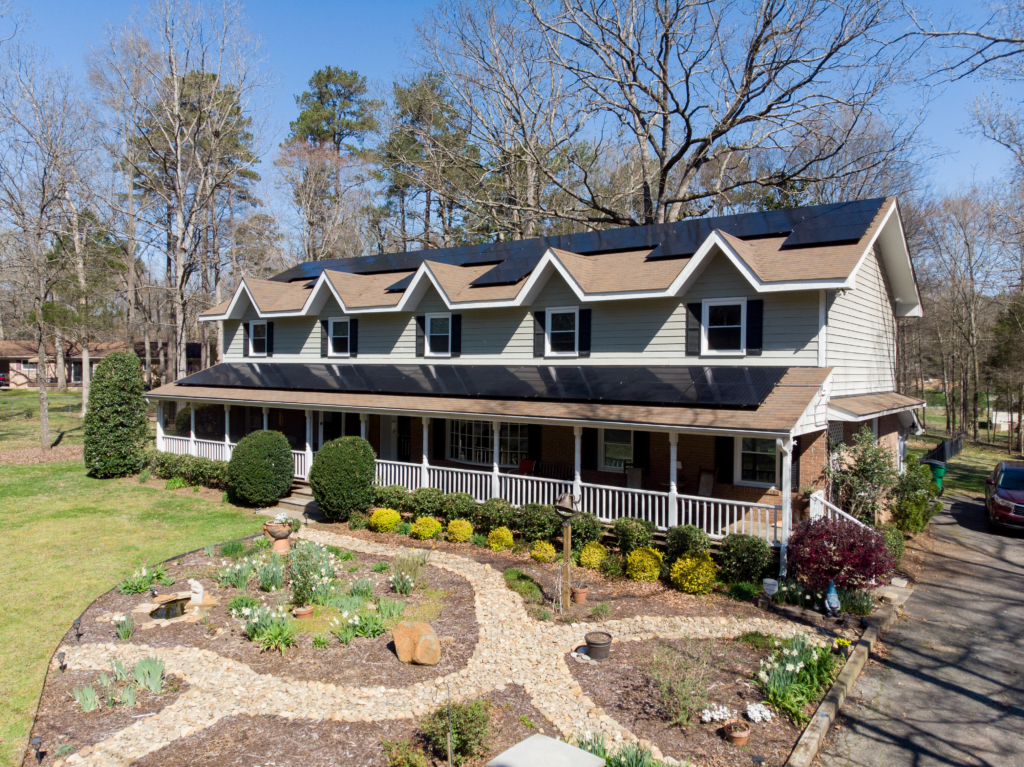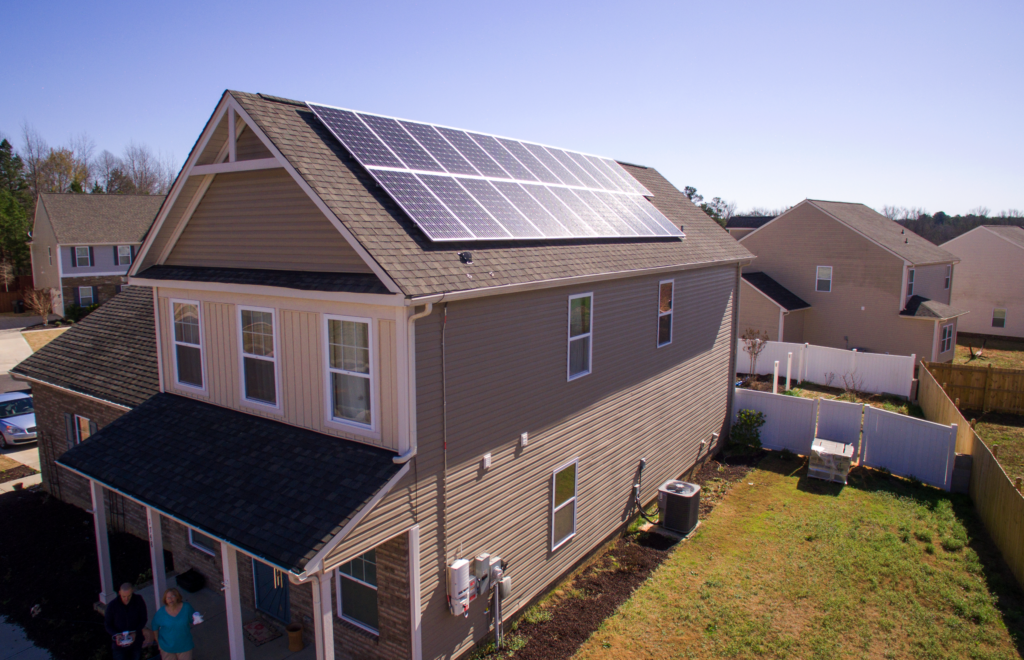Solar Energy Smart Home
Awesome Solar CTA. Really Amazing…
Solar Energy Smart Home with Renu
Living in a Solar Energy Smart Home is about taking charge of your energy future. Today, your energy costs and energy sources are largely decided by utility executives and boards overseen by regulatory agencies and bureaucrats. How much do you pay for your energy? Is the energy produced with fossil fuels or renewable energy? What options do you have for maintaining power when the grid is down? How much will you pay for cleaning up your utility’s pollution or for a failed power plant project?
Three steps to controlling your energy future with a Smart Home
To gain control, the journey includes
- Produce your own power
- Observe and manage your consumption
- Store your energy
Produce Your Own Power with a Smart Home
The first step – produce your own power – has never been more affordable with various tax credits and utility rebates. Controlling your energy future meaning putting an end to the status quo, where you settle for buying all your energy from the utility. For most people, solar energy will be the best alternative for producing your own power.
Observe and Manage Your Smart Home Consumption
The second step – manage your consumption – is about both monitoring your energy use and finding ways to make conscious choices or simply putting energy efficiency solutions into practice. This can be achieved with things like consumption monitoring as part of your solar system, smart thermostats as well as adding other solar based products to your home like solar attic fans and indoor solar lighting.
Store Your Own Energy
The final step to be effectively 100% in charge of your energy future would be to add energy storage. This allows you to store the solar power that you generated during the day to use at night. The energy storage also means you have power in case of power outages that impact your neighbors. The power in your battery comes from your own solar, not a noisy generator that can run out of fuel. To keep your essentials going when the grid can’t, solar and storage is the way to go.

Frequently Asked Questions About Solar for Your Home:
How exactly does going solar and a solar system itself work?
How many solar panels do I need for my home?
Roof-size/available space: When we look at the size of your roof and the space available, we gather data that tell us the maximum number of solar panels your home or site can hold and we even consider shading. We use a software “Suneye” which takes a 360 picture of your roof and we use this photo to determine if your home is a good candidate for solar.
Energy Usage: When we determine energy usage we look at your past electrical bills from over the course of a year to make sure your system isn’t too big or too small.
Your Budget: We take your budget seriously and most importantly, we want you to be satisfied with our services. We take your feedback on how much you want to spend so that we can size your system appropriately.
What is solar net-metering?
Does Duke Energy offer net-metering?
Curious about the cost of a home solar system?
PV Solar System
Our PV Solar Systems are really, really great and they are priced perfectly and will immediately and fundamentally improve the quality of your life.
Energy Storage
Our PV Solar Systems are really, really great and they are priced perfectly and will immediately and fundamentally improve the quality of your life.
EV Chargers
Our PV Solar Systems are really, really great and they are priced perfectly and will immediately and fundamentally improve the quality of your life.

Produce your own power
It has never been more affordable with various tax credits and utility rebates. Controlling your energy future meaning putting an end to the status quo, where you settle for buying all your energy from the utility. For most people, solar energy will be the best alternative for producing your own power.
Manage your consumption
is about both monitoring your energy use and finding ways to make conscious choices or simply putting energy efficiency solutions into practice. This can be achieved with things like consumption monitoring as part of your solar system, smart thermostats as well as adding other solar based products to your home like solar attic fans and indoor solar lighting.
Store your energy
The final step to be effectively 100% in charge of your energy future would be to add energy storage. This allows you to store the solar power that you generated during the day to use at night. The energy storage also means you have power in case of power outages that impact your neighbors. The power in your battery comes from your own solar, not a noisy generator that can run out of fuel. To keep your essentials going when the grid can’t, solar and storage is the way to go.
Insert more here if needed
